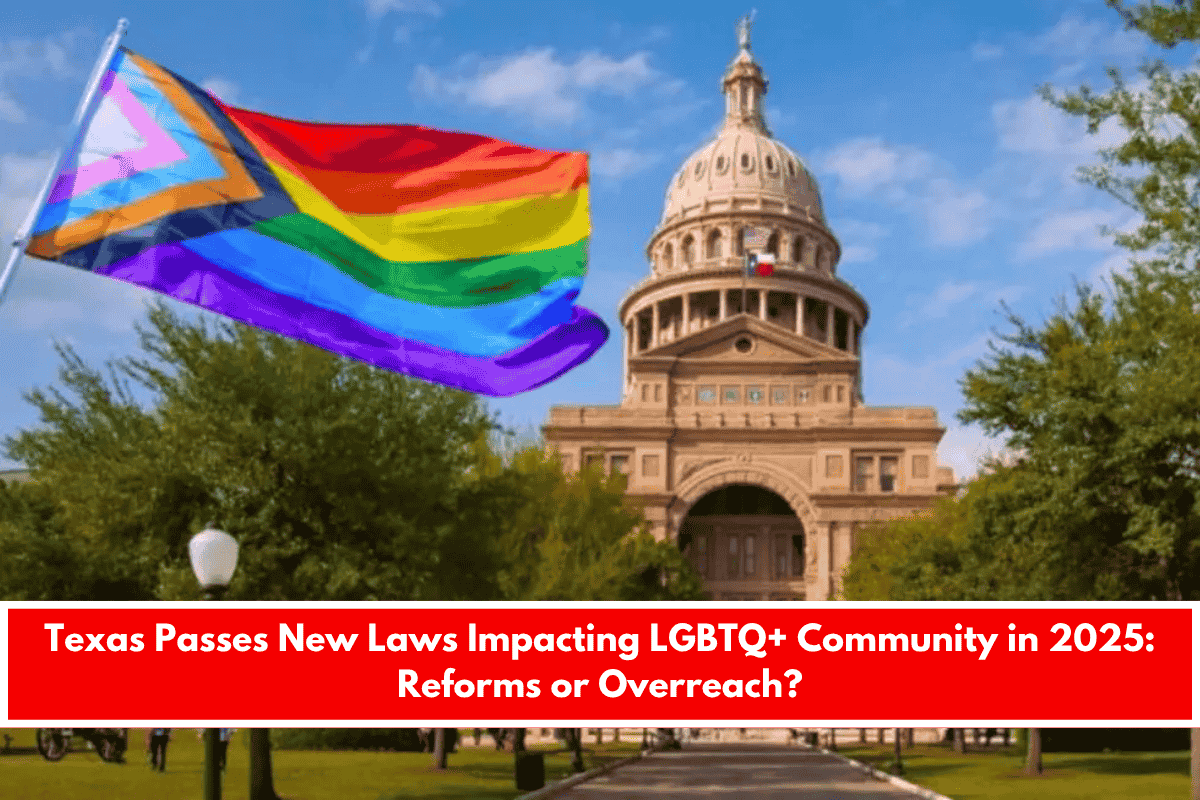In 2025, Texas is taking strong steps in the culture wars, passing a series of new laws that are significantly changing life for LGBTQ+ Texans. Supporters claim these changes are about protecting children, restoring biological truth, and keeping politics out of schools.
However, critics—including some moderate conservatives—are calling out what they see as contradictions and double standards.
1. Defining Legal Gender by Biology
House Bill 229 says that a person’s sex is determined only by their reproductive organs—in short, if someone has ovaries, they are female; if they produce sperm, they are male.
But critics ask:
What about women who’ve had hysterectomies (removal of the uterus) or men who’ve had vasectomies? Does Texas law no longer recognize them as their gender? This raises questions about medical exceptions and legal clarity.
2. Banning Gender-Affirming Care for Minors
Senate Bill 14 (SB 14) blocks any form of gender-affirming healthcare for children under 18, such as hormone therapy or surgery. Lawmakers say it’s about protecting kids from making permanent choices too early.
However, critics point out:
Texas still allows minors to undergo plastic surgery, get married with court approval, and even be tried as adults in serious crimes. So why is gender care considered more “dangerous” than those other choices?
3. Blocking LGBTQ+ Clubs in Schools
Senate Bill 12 stops public schools from having LGBTQ+ clubs or allowing teachers to use a student’s chosen name or pronoun. It’s said to be about keeping political topics out of classrooms.
But the contradiction?
Texas still requires schools to display the Ten Commandments and allows Christian student clubs. Isn’t that also promoting an identity and belief system in schools?
4. Bathroom Law With Legal Penalties in Odessa
In Odessa, a new rule bans people from using public restrooms if their gender identity doesn’t match their sex at birth. It also allows private citizens to sue violators for at least $10,000.
But this raises major issues:
How will anyone verify a person’s “birth sex”? Will there be invasive questioning or confrontations in restrooms? Critics warn this could lead to hostility and lack of privacy, not safety.
5. Mixed Messages and Inconsistent Rules
Supporters call these laws necessary corrections, but many people—including some conservatives—say the rules are not applied equally. They argue that these laws claim to protect children or avoid politics, yet allow other “political” expressions or risky decisions for minors.











Leave a Reply